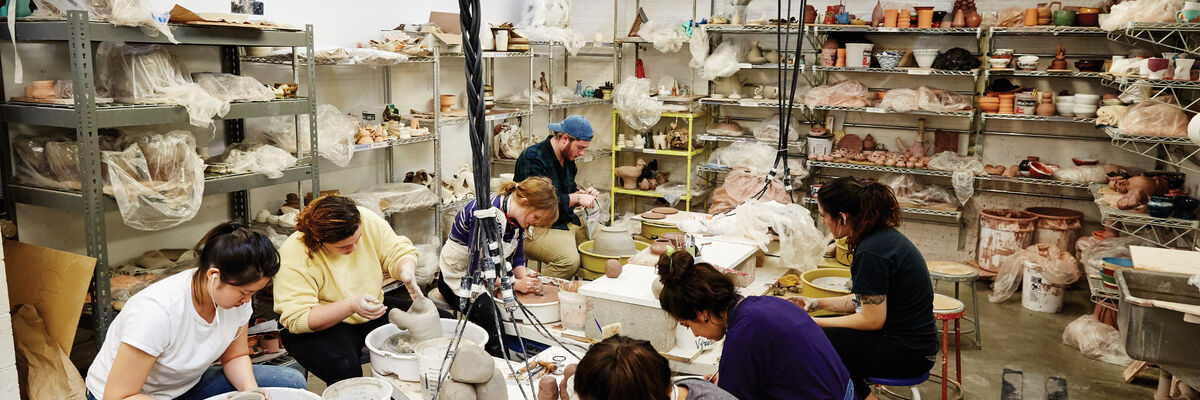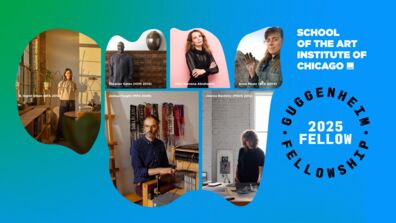
Empowering a New Wave
RE-TOOL 21: Art Preparation Skills Development Program Provides Arts Training for Professionals
by Ana Sekler (MA 2016)

Every Saturday and Sunday for seven weeks from September through November, a variety of professionals came together to learn how to frame and mat artwork, pack and crate art objects, and much more. The eight participants along with a peer mentor devoted their weekends to learn new skills as part of RE-TOOL 21, a program which seeks to provide opportunities for traditionally underrepresented groups, including women, immigrants, and people of color, for advanced arts education or training while working to make the industry more inclusive and accessible.
Through RE-TOOL 21, which is sponsored by a grant from the Joyce Foundation, SAIC is able to provide a free training program for professionals, teaching skills from framing and mounting artworks to handling, installing, and appraisals. Ife Williams, program coordinator, says that one of the goals of the program is to create a more inclusive, diversely representative, and accessible arts preparation field, disrupting the more traditional cycles of arts and culture.

“RE-TOOL 21 has the potential to not only provide an entry point for a new wave of arts technicians, it may prove to be a launch pad for future arts professionals who will go on to create new institutions and businesses that enhance our communities and attract new audiences,” says Tracie D. Hall, director of the Joyce Foundation’s Culture Program.
Many of the people and places they visit and learn from are part of the network of SAIC alums and faculty, like the Roger Brown Study Collection. “We had the pleasure of unpacking, writing condition reports, and reinstalling about 20 pieces of Roger Brown’s (BFA 1968, MFA 1970) work that was on exhibit in New York, and that was a big deal,” says Michael Ryan, lead instructor and adjunct professor in Arts Administration and Policy, who taught and developed the curriculum for the program.
The sessions are intensive and participants learn a range of new skills. “I want to be an independent curator, so I’m excited to learn the technical stuff, how to document artwork, and the logistical and legal side,” says Alexis Villagomez, who works as a family day assistant at the Museum of Contemporary Art Chicago.
For others, like Richton Thomas, a health plan advisor, the program is opening up new avenues. “I’ve never even thought about appraising art for insurance purposes…it’s interesting because my work background is in insurance and financial services,” he says.
In addition to the hands-on training and exposure to working professionals, participants receive a certificate of recognition, a stipend for their time and successful completion of the program, and support from RE-TOOL 21 staff to identify potential employment opportunities.
“Everyone has different experiences from their work background or creative practice, and we come together and help one another,” says Thomas.
For more information, please visit saic.edu/retool.
